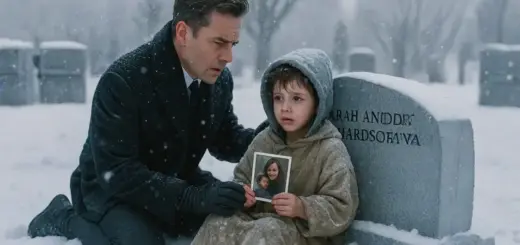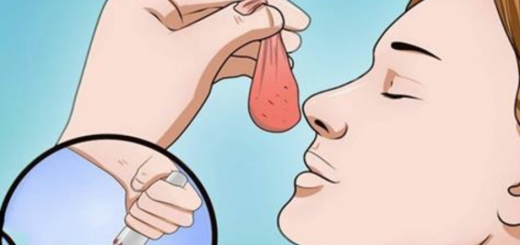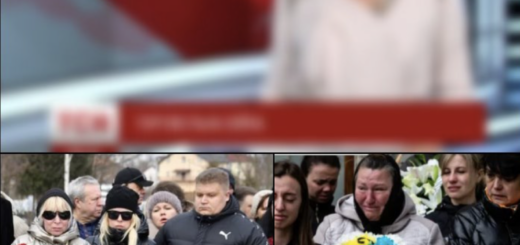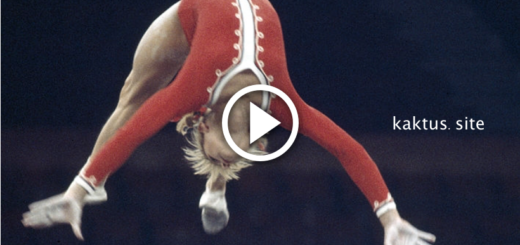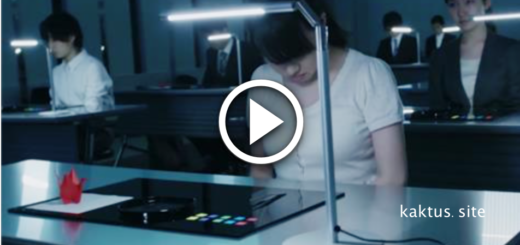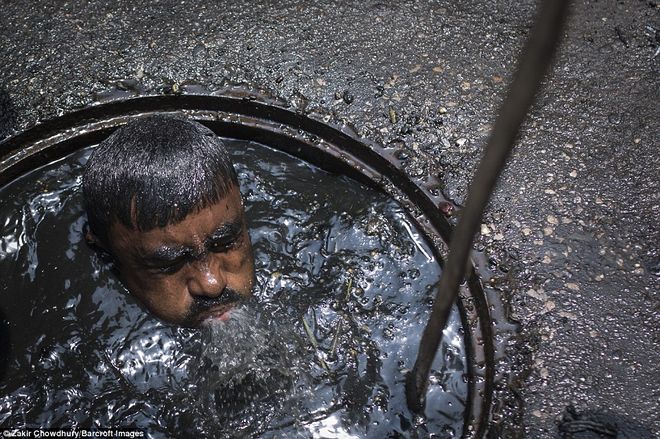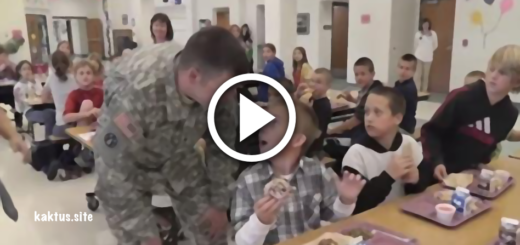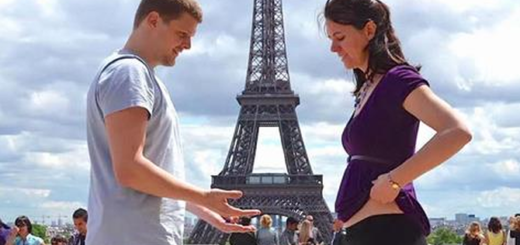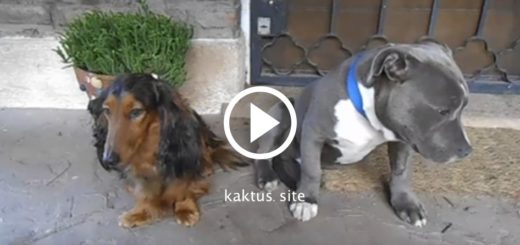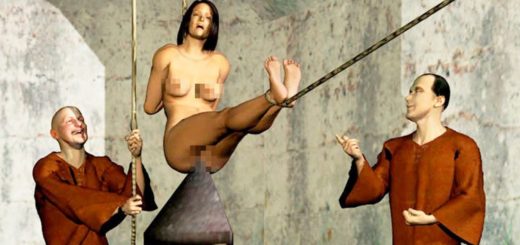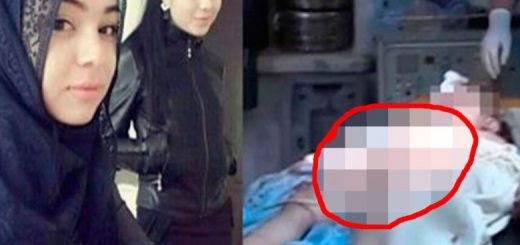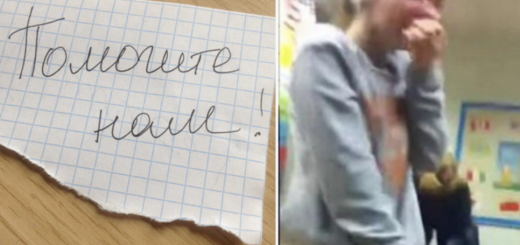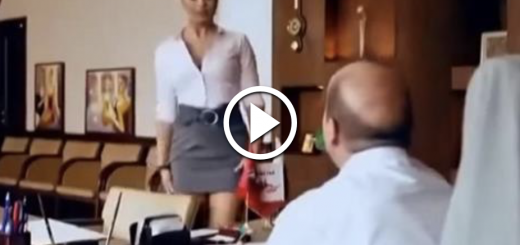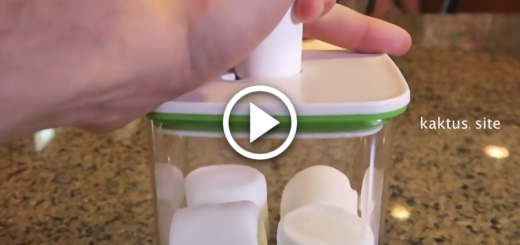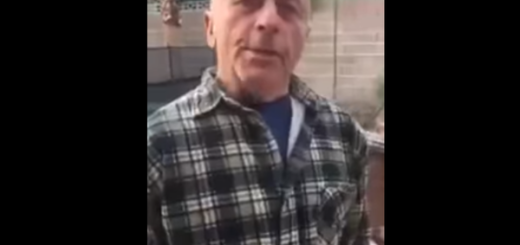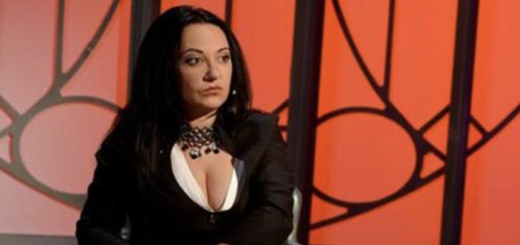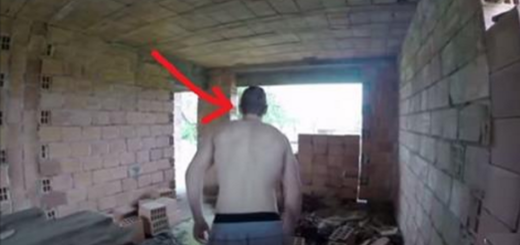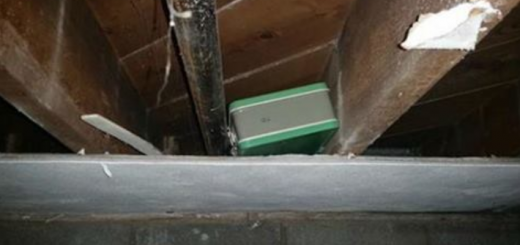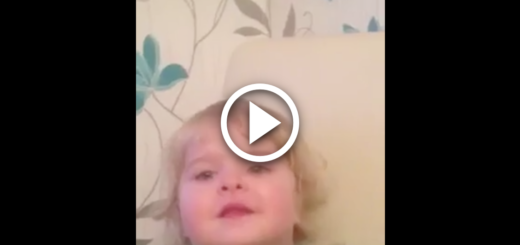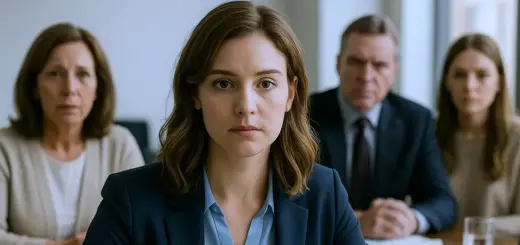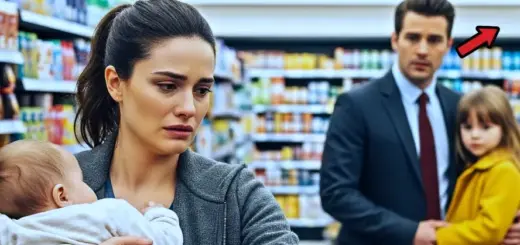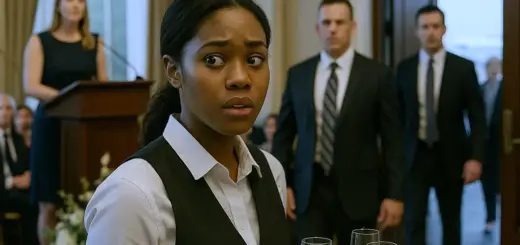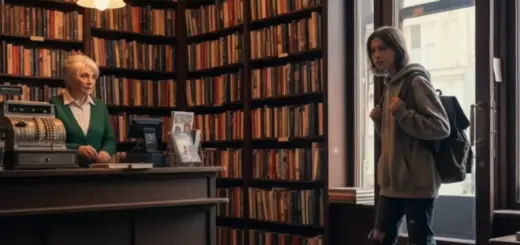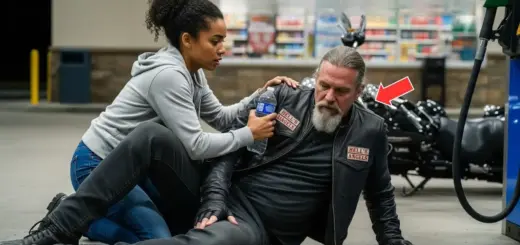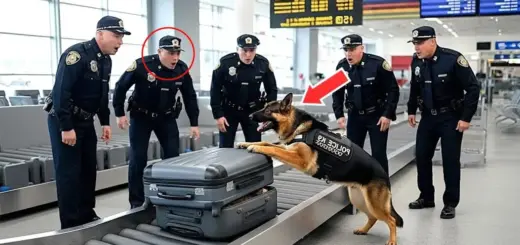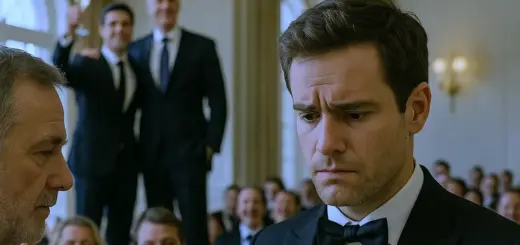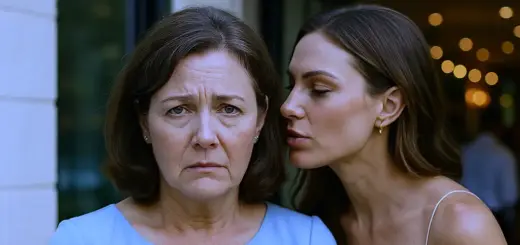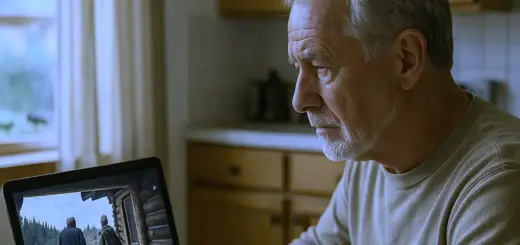The Morrisons are my real family. Are we? Robert’s smile was sharp as a blade. Because last I checked, you don’t actually have any legal claim to the Morrison name once you turn 18.
Margaret adopted you, yes, but adoption papers can be complicated things. Especially when other family members have concerns about outside influences. I felt the blood drain from my face.
What are you saying? I’m saying that your place in this family depends on you making choices that protect our reputation and our interests. Dating some rich boy who’s going to start digging into your history isn’t protecting anything. It’s creating problems we don’t need.
That night, I lay awake in my childhood bedroom, staring at the ceiling and trying to process what Robert had implied. Could he really challenge my adoption? Could he somehow take away the only family I’d ever known? More importantly, was he right about Daniel? Was I using him without even realizing it? Was our entire relationship built on some unconscious calculation on my part? Some desperate attempt to secure my future through someone else’s wealth? The doubts Robert had planted grew over the next few weeks. Every time Daniel talked about his family, every time he casually mentioned something that reminded me of the difference in our backgrounds, I wondered if I was fooling myself about what we meant to each other.
The end came two weeks later, in the most devastating way possible. I was supposed to meet Daniel at our usual spot in the library, but I was running late after a meeting with my advisor about summer internships. When I finally got there, I heard voices coming from our usual study room.
The door was slightly open, and through the crack, I could see Daniel sitting across from Rebecca. My sister had never shown any interest in my college life before. She’d never even visited campus.
But there she was, leaning across the table with tears in her eyes, her voice heavy with what sounded like genuine concern. I just think you should know what you’re getting into, she was saying. Corlette is family and we love her, but she’s been through so much trauma.
The foster care system really damaged her ability to form healthy attachments. She gets obsessed with people who show her kindness, and she interprets normal friendship as something more serious. I felt my knees go weak.
This wasn’t happening. Rebecca wouldn’t do this to me. But she kept talking, her voice full of fake sympathy.
Our parents are worried about her, honestly. She’s never had a real relationship before, and they think she’s projecting all her abandonment onto you. It’s not fair to either of you.
Daniel’s voice was quiet when he responded. She seems very independent to me. Strong.
She is strong in some ways. But Daniel, she’s also incredibly vulnerable underneath all that strength. She’s told me how much your relationship means to her.
How she’s already planning your future together. I think she genuinely believes you’re going to marry her. The words hit me like a physical blow, because they were true.
I had been thinking about a future with Daniel. I had been imagining what our life could look like after graduation. The thing is, Rebecca continued, her voice gentle and devastating.
Corlette has never had anything that was really hers. She spent her whole life trying to find someone who would choose her permanently. And when she fixates on someone like that, she can become very intense, very demanding.
It’s not her fault, but it’s not healthy either. I couldn’t listen anymore. I turned and ran, my heart breaking with every step.
That night, Daniel called me 17 times. I didn’t answer. The next day, he showed up at my dorm room, but I pretended I wasn’t there.
For a week, he tried to reach me, tried to explain that whatever I’d heard wasn’t the whole story. But Rebecca’s words had poisoned everything. Every memory of our relationship was now tainted by the possibility that Daniel saw me as a damaged, desperate girl who’d misinterpreted his kindness.
Every plan we’d made together now seemed like evidence of my own pathetic neediness. Finally, I sent him a single text message. Rebecca was right.
I was reading too much into what we had. I think we should take a break and focus on school. He tried to call me immediately, but I’d already blocked his number.
Two weeks later, I saw him across campus with a blonde girl from his finance class. They were just studying together, probably, but to me it looked like proof that Rebecca had been right. He’d moved on easily, the way someone does when they’ve been relieved of an uncomfortable burden.
I never spoke to Daniel again. Now, sitting in that attic with Margaret’s letter in my hands and the truth about my adoption finally revealed, I wondered what might have been different if I’d known then what I knew now. If I’d understood that I was never the charity case Robert had convinced me I was.
If I’d had confidence that comes with knowing your worth isn’t dependent on other people’s kindness. But it was too late for those regrets. Daniel was probably married to his finance classmate by now, and I was about to be thrown out of the only home I’d ever known.
Or so I thought. What I didn’t know was that Daniel had never forgotten me. What I didn’t know was that he’d spent the last three years trying to find me, trying to understand why I disappeared from his life so suddenly.
What I didn’t know was that Rebecca’s manipulation had failed in one crucial way. Daniel had never believed a word she’d said. And what I definitely didn’t know was that the quiet boy from my economics class had just inherited his father’s multi-billion dollar technology empire, making him one of the most powerful men in America.
The revenge that was coming wouldn’t be planned by me. I was too busy trying to survive, trying to figure out how to rebuild my life from nothing. But Daniel was planning something that would make the Morrison family’s charity banquet a night they would never forget.
I just had to get through the next few months first. I had to hit rock bottom before I could rise again. And trust me, rock bottom was coming fast.
Three days after I found Margaret’s letter, Rebecca knocked on my bedroom door at seven in the morning. Daddy wants to see you in his office, she said, not bothering to hide the satisfaction in her voice. Bring your things.
I knew what this meant. My week of grace was up. I’d spent those three days in a strange kind of limbo, packing my belongings while trying to process everything I’d learned about my adoption.
The money from my birth mother’s inheritance was sitting in a new bank account, enough to start over anywhere I wanted. But somehow, having financial security made the emotional devastation worse, not better. For the first time in my life, I didn’t need the Morrison family’s charity.
I could leave with my head held high, knowing I had options and opportunities they’d never given me credit for. But that also meant I couldn’t pretend anymore that staying was about necessity. If I fought for my place in this house, it would be purely because I still, despite everything, wanted to belong here.
And I wasn’t sure I was strong enough to want something from people who had never wanted me back. Robert was sitting behind his desk when I entered his office, the same way he’d positioned himself during our conversation about Daniel. But this time, Catherine was there too, perched on the edge of a chair like she was attending a business meeting.
Sit down, Corlette, Robert said, gesturing to the chair across from his desk. I remained standing. I’ll take my things and go.
You don’t need to make this into a formal eviction. Actually, we do need to make this formal. Robert opened a folder on his desk, and pulled out several documents.
Margaret’s death has raised some legal complications regarding your status in this family. My blood went cold. What kind of complications? Catherine leaned forward, her voice taking on the fake concern tone I remembered from her conversation with Daniel.
The thing is, Corlette, when Daddy and Mother adopted you, they were very young and didn’t fully understand all the legal implications. Adoption laws have changed a lot since then. What are you saying? Robert slid a document across the desk toward me.
I’m saying that your adoption was never fully finalized. Margaret handled most of the paperwork, and she was so eager to bring you home, that she rushed through the process. There were some documents that were never properly filed.
I stared at the papers in front of me, but the words seemed to swim together on the page. That’s impossible. I’ve had your name for 15 years.
You’ve used our name, Catherine corrected. But legally, you were only ever a foster placement with intention to adopt. The final adoption decree was never processed.
The room started to spin. Margaret would have told me. Margaret wanted to protect you from complicated legal issues, Robert said, his voice taking on the patient tone you’d use with a confused child.
She thought there would be time to sort everything out later. Unfortunately, later never came. I finally sat down, my legs unable to support me anymore.
What does this mean? It means that legally, you’re not a Morrison, Catherine said, and I could hear the relief in her voice. You never were. You were a foster child in our care, and now that you’re an adult, that arrangement has ended.
But the inheritance. What inheritance? Robert’s eyebrows rose. Margaret left you some personal letters.
That’s hardly an inheritance. They didn’t know about the money. Margaret had hidden my birth mother’s legacy so well that even Robert, with all his legal knowledge and financial expertise, had no idea it existed.
For a moment, I felt a flash of gratitude for Margaret’s secrecy, even though it had cost me so much pain over the years. So what happens now? I asked, surprised by how steady my voice sounded. Now you take your belongings and start your adult life, Robert said, closing the folder with finality.
We’ve arranged for you to have until the end of the day to pack. After that, this house belongs to the family. I am family.
The words came out automatically, even though I knew how pathetic they sounded. Catherine actually laughed. Corlett, come on.
You’re 22 years old. It’s time to stop playing pretend and join the real world. I looked between the two of them, these people who had shared my home for 15 years, who had sat at the same dinner table and celebrated the same holidays and pretended to be my siblings.
And I realized that Margaret’s death hadn’t changed anything fundamental about how they saw me. It had just removed the one barrier that had kept them from acting on their true feelings. Fine, I said standing up.
I’ll be gone by tonight. Corlett, Robert’s voice stopped me at the door. I want you to know that this isn’t personal.
You’re a bright girl with a lot of potential. But this family has responsibilities and reputations to maintain. We can’t carry the burden of caring for someone who isn’t legally our obligation.
Burden. The word hit me like a slap, even though I should have expected it. After 15 years of trying to prove I wasn’t a burden, I was still exactly that in their eyes.
I understand, I said and walked out of Robert’s office for the last time. The next eight hours were the longest of my life. I packed everything I owned into three suitcases and two cardboard boxes, sorting through 15 years of accumulated belongings and trying to decide what parts of my life were worth carrying into an uncertain future.
Most of my clothes went into the suitcases. My books, the ones Margaret had given me over the years, went into one box. My photos and personal documents went into the other.
Everything else, the furniture, the decorations, the little gifts and mementos that had made my room feel like home, I left behind. As I packed, I could hear Rebecca and Catherine in the hallway, talking excitedly about their plans for my room. Rebecca wanted to turn it into a home office.
Catherine thought it would make a perfect guest room for when her friends visited. Neither of them knocked on my door to say goodbye. At six o’clock, a moving truck arrived to take my belongings to a storage unit I’d rented across town.
I’d found a small apartment near the university, nothing fancy but clean and safe, with a month-to-month lease that would give me time to figure out my next move. As I loaded the last box into the truck, Margaret’s Honda Civic pulled into the driveway. I’d forgotten that it was mine now, the one thing Margaret had specifically left to me in her will.
It wasn’t much, but it was transportation and independence. Robert came out to watch me drive away, standing in the doorway with his arms crossed like he was making sure I actually left. Rebecca and Catherine didn’t even bother to come outside.
As I pulled out of the driveway for the last time, I caught a glimpse of the house in my rear-view mirror, the place where I’d spent my childhood and teenage years, where I’d done my homework at the kitchen table and celebrated every birthday and Christmas morning, where Margaret had read to me every night and told me I was just as smart as my sisters. It looked smaller than I remembered, less impressive, just a house full of people who had never really wanted me there. But as I drove toward my new apartment, I made myself a promise.
I wasn’t going to spend the rest of my life grieving for people who had never loved me. I wasn’t going to waste the gift my birth mother had given me by wallowing in self-pity. I was going to build something new, something that belonged entirely to me.
I just had no idea how hard that was going to be. The apartment was fine for the first few weeks. I had enough money to live comfortably while I figured out my next step, and the freedom of making my own choices was intoxicating after years of trying to fit into someone else’s expectations.
But freedom, I learned, could be its own kind of prison. Without the structure of school or family obligations, days stretched out endlessly ahead of me. I’d applied to several law schools before Margaret died, but the admissions process suddenly felt overwhelming and pointless.
What was the point of becoming a family lawyer when I’d never really had a family of my own? I tried to make new friends, but I’d spent so many years focused on academic achievement and family approval that I’d never learned how to form casual relationships. I’d go to coffee shops and bookstores, hoping to strike up conversations with people my age. But I felt like I was speaking a different language.
Everyone else seemed to have networks of support, people they could call when they needed help or just wanted to talk. I had no one. Margaret was gone.
Daniel was a closed chapter one couldn’t reopen. And the Morrison family had made it clear I was no longer welcome in their lives. For the first time in my life, I was completely alone.
The isolation might have been bearable if the Morrison family had simply forgotten about me. But they didn’t. They went out of their way to make sure I knew exactly how little I’d meant to them.
Two months after I moved out, I ran into Catherine at the grocery store. She was with a friend I didn’t recognize, both of them dressed in the expensive casual clothes that marked them as people who had never worried about money. Oh my god, Corlett.
Catherine’s voice was bright and fake, loud enough to attract attention from other shoppers. How are you? We never hear from you anymore. I’m fine, I said, hoping to keep the conversation short.
Are you still living in that cute little apartment near the university? She turned to her friend with a patronizing smile. Corlett used to live with us, but she’s been so independent since graduating. We’re so proud of how well she’s doing on her own.
The way she said it made it sound like I was a charity case they’d successfully rehabilitated, not the girl who’d been thrown out of their house with three suitcases and a box of letters. Actually, Catherine continued, clearly enjoying herself, we’re having a little gathering next weekend to celebrate Rebecca’s engagement. Nothing fancy, just family and close friends.
But I’m sure you understand why it might be awkward to invite you. I felt my cheeks burning with humiliation, but I kept my voice steady. Of course, congratulations to Rebecca.
I’ll tell her you said that, Catherine said, already turning away. Take care of yourself, Corlett. That night, I sat in my empty apartment and realized that leaving the Morrison house hadn’t ended my relationship with them.
It had just changed the power dynamic. Now they could hurt me without having to live with the consequences. They could humiliate me in public and then go home to their comfortable lives, secure in the knowledge that they’d never have to see my reaction.

